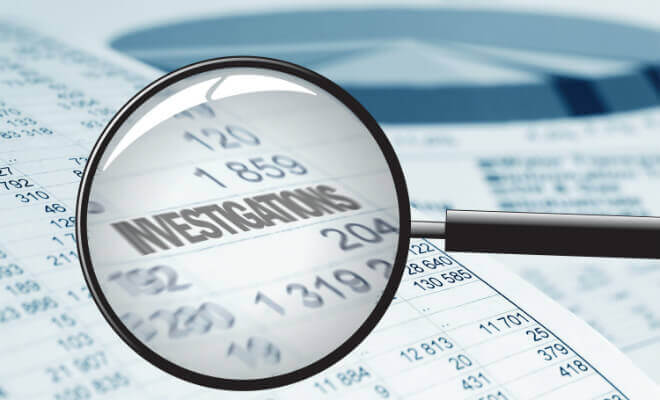Accounting takes many forms, one of which is forensic accounting. A lot of arguments have been thrown as to whether forensic accounting is different from forensic auditing. While we believe the goal of these two are the same, we will let the discussion pass for today and focus on the benefits of forensic accounting.
What is Forensic Accounting?
Forensic accounting is a strategic accounting process that involves the use of accounting, auditing and investigative skills to examine the finances of a business or an individual to detect or prevent fraud.
Forensic accountants gather, monitor, study and analyze both financial and non-financial information to detect or prevent fraud. Such accounting analysis is normally used in legal proceedings.
The motive, tools and processes involved in forensic accounting make it different from normal accounting. Financial accounting seeks to unearth evidence of misconduct.
Because business accounting can sometimes be extraordinarily complex, it is only through investigation that omissions and commissions in books of accounts can be detected.
If the evidence of monetary misgivings is overlooked or ignored, it can result in devastating financial and legal consequences for the business. Therefore, it is the job of forensic accountants to look for or prevent and pre-empt fraudulent activities in a financial sense.
Why is Forensic Accounting Important?
Because of the digital revolution that we are currently witnessing, which is powered by technical innovations, it is now easier than before for criminals to tamper with business accounts and defraud them.
As security experts intensify their efforts to safeguard businesses from external risks because of their reliance on computers and the internet, hackers have found a way to push back with equal force or even more.
Hackers are not the only problem. A good number of research studies has proven countless times the number of rising white-collar crime growing every year, which costs business at least $1 trillion every year. Powered by technology and evolving skills, these contemporary fraudsters hardly leave any trail of evidence behind.
Because of the complexity of such frauds, contemporary accountants and business managers simply do not have the skills or even the knowledge and time to unearth this level of fraud. All they are left to do is to suspect.
For a business to safeguard itself from such devastating losses and dire legal consequences, it must take a proactive approach to accountancy, which includes the deployment of forensic accountants.
Forensic accountants have the capability and training to detect any evidence whatsoever of fraudulent or unusual activity in such cases. If and when found, forensic accountants will then gather the evidence, collate and ultimately present the findings clearly and concisely, which in most cases, is in a court setting.
5 Benefits of Forensic Accounting
The above explanation provides the foundational reason as to why one would want to deploy forensic accountants. Forensic accounting provides probably the only realistic approach to understanding what is going on behind the scenes in a financial capacity.
For businesses on the run to minimize losses and maximize revenues, forensic accounting provides the most realistic pathway to achieving this. Below are the primary benefits of forensic accounting.
Minimize Losses
Whether ordered by a court in pursuit of evidence of financial fraud or not, forensic accounting is probably the only way that can help businesses to minimize and prevent unnecessary financial loss. It is undeniable that fraudulent activity and general financial discrepancies have led to the collapse of businesses that would have benefited the community a lot.
Improved Efficiency
As forensic accountants examine and investigate financial processes and standards, there is a huge chance of identifying even more effective and efficient solutions to the financial problems that a company or business is facing.
The whole essence of forensic accountancy is not only in seeking evidence of financial fraud but also to help detect problems and possible areas of improvement for the benefit of the affected business.
Reduced Exploitation Risk
Another realistic advantage of forensic accounting is the reduced exploitation risk. This only happens when businesses proactively patch the obvious gaps in their current financial operational standards.
As forensic accountants work, especially in a case where they are not seeking to detect any fraud, they are simply protecting the best interests of the business, way ahead of the occurrence of any fraudulent activity.
Avoidance of Legal Problems
Instances of fraud, whether internal or external, are normally costly and disruptive to the business. In the best-case scenario, forensic accountancy can be used to avoid such instances of fraud and thereby doing double good to the business— preventing any possible cases of fraudulent activity and possibly nipping the detected problems in the accounting processes.
Improved Brand Reputation and Authority
History has proven that in the business world, it is very difficult to respect, work or trust a brand that leaves itself wide open to fraud and manipulation. Instances of fraud can inflict the kind of reputational damage that is nearly impossible to repair. As reputation is key to business success, it is therefore very important for businesses to invest in rigorous and ongoing forensic accountancy.
Interested in forensic accounting/audit services? We can help you.
Taxmart Kenya has an in-house team of qualified experts in forensic accounting and auditing that can completely transform your business through reliable and trustworthy forensic accounting and auditing.
If your business is looking to safeguard itself from financial fraud, investing in forensic accounting is the way to go. Talk to us and we will help you understand more and reveal ways to protect your business from fraud- both internal and external.

